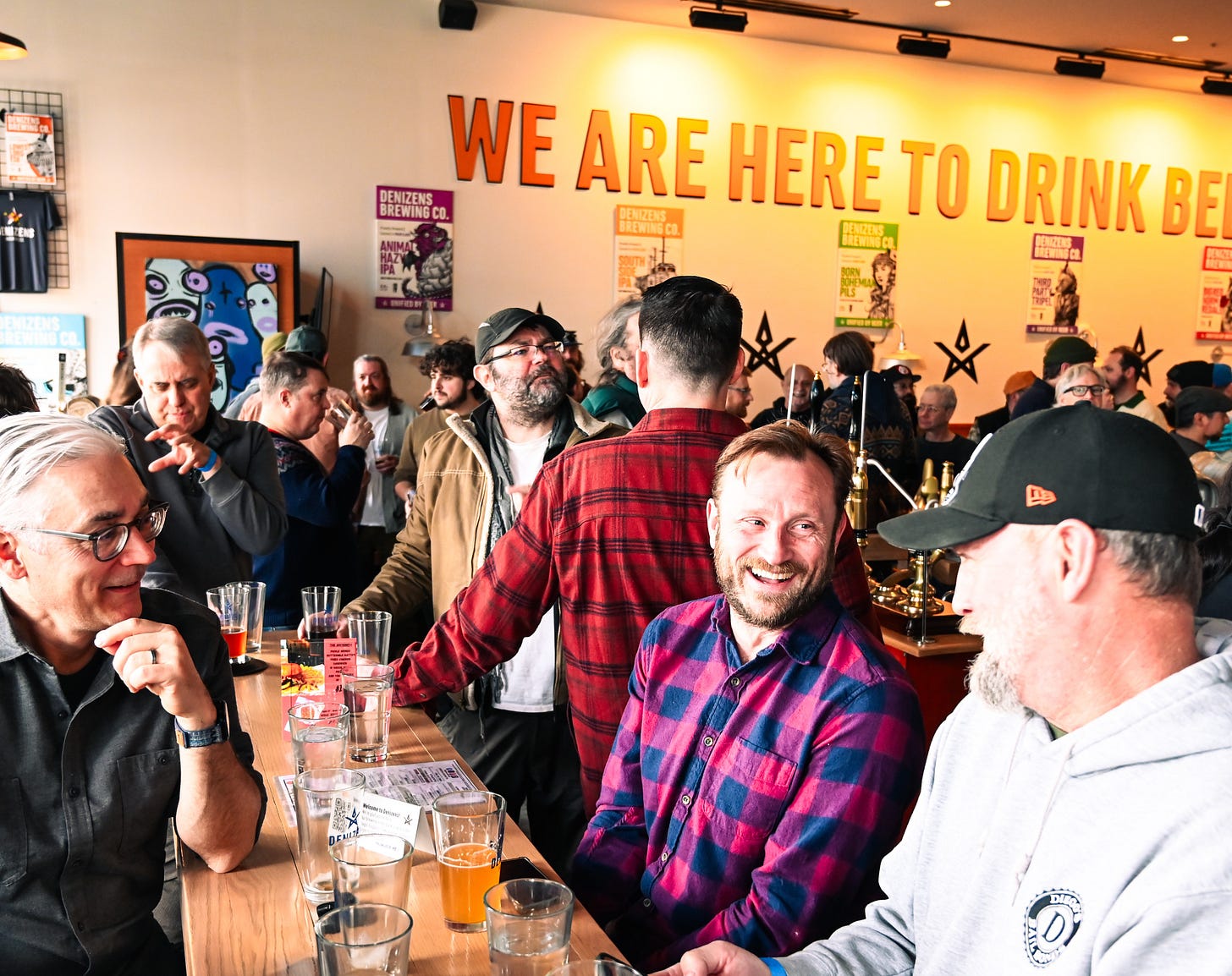How to change laws and influence policy
A conversation with Julie Verratti from Denizens Brewing Co.

I met Julie Verratti, founder and chief brand officer of Denizens Brewing Co. in Maryland, at last month’s FAB conference in Charleston, SC for women in the restaurant industry. She sat on a panel I moderated about policy change, advocacy, and uncertainty in the business, and as she shared her experience and advice, collected over years working in both restaurants and government, I realized I was taking notes.
From the outside, regulatory policy and the forces that shape it seem opaque and confusing. But, as Verratti explains in our conversation below, there’s tons of opportunity to influence the future of restaurants at all levels of government and regulation.
Verratti started her post-law school career in Washington, D.C. working at the Small Business Administration as a Presidential Management Fellow during the Obama administration, and watched from the front row as the Affordable Care Act was implemented. She left Washington to start Denizens, changing a few laws in the process. Then, in 2021, she took a leave of absence from the brewery to work as an appointee under President Biden at the SBA, where she organized and spoke up for the restaurant industry’s interests during the formation and implementation of the Restaurant Revitalization Fund.
I found this information helpful and fascinating, especially during a time of unpredictable uncertainty. I hope you do, too!
Our conversation has been edited for length and clarity.
Additional resources:
> The Independent Restaurant Coalition recently shared its own extremely thorough guide to advocacy; you can view it here.
> The National Restaurant Association’s ‘get involved’ page lists the org’s priorities and efforts and suggests action.
Expedite: I love this narrative that you rewrote laws to open your brewery over a decade ago. Tell me what happened.
Julie Verratti, Denizens Brewing Company: “For better or worse, when you build a business in the D.C. metropolitan area, you have a choice of jurisdiction — Maryland, D.C., or Virginia. I was born and raised in Silver Spring, a suburb of DC in Montgomery County, Maryland. My wife and I live there now, and we wanted to build the business there, but knew we needed to change some laws to make that happen.
“Then, over 12 years ago, you could either operate a brewpub — a restaurant that brews its own beer — or a production brewery in an area zoned for manufacturing, where it’s not feasible for people to come visit. The two things we got changed were, one, allowing us to operate a taproom seven days a week with no restaurant, that’s zoned in an urban area where people live and work, and, two, the ability to distribute to other businesses without having to get a separate license.”
How?
JV: “First, we looked into who was in charge of alcohol operations. Is this a state thing? Is this a county thing? Is this municipality thing? Obviously, manufacturing alcohol is a highly regulated industry, and we are still heavily regulated — I deal with federal and state and county agencies all the time. So even though it was a state law we needed to get changed, it mattered that we got buy-in from the local county officials — if they were against it, the state legislators wouldn’t support it. So I reached out to our county council members and explained what we wanted to do.
“The messaging that works best, in my experience, is talking about jobs numbers, talking about tax revenue, talking about how this will knock down barriers to entry for small businesses. This sounds very calculated… but it’s also true.”
Right. Don’t lie to your representatives.
JV: “Exactly, but you do have to talk about what they care about.



